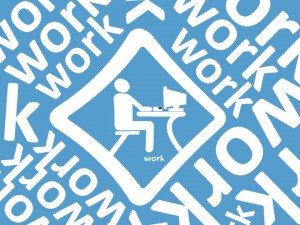Do you sometimes do things which aren’t on point?
Do you sometimes do the opposite of what you feel you should?
Do you sometimes wonder why it seems you want to do one thing and yet you do another?
Don’t worry, we all do.
There is a famous saying in Zen that goes “Eat when hungry, sleep when tired.”
(Yes – in the title of this post I got it completely mixed up! on purpose, as you will see)
So, what does it mean?
At first it might seem a very obvious statement, not making much sense. After all, isn’t it normal to “eat when hungry, sleep when tired”? Actually, no.
 Everyday living usually has us acting like automatrons. This is especially true for our times in which everything is automized, computerized, mechanized. It starts with education. We go to bed when our parents tell us. Later we go to bed, because of school next day. Even later, because of the boss. If you’re tired in the office, sleep is not an option, usually.
Everyday living usually has us acting like automatrons. This is especially true for our times in which everything is automized, computerized, mechanized. It starts with education. We go to bed when our parents tell us. Later we go to bed, because of school next day. Even later, because of the boss. If you’re tired in the office, sleep is not an option, usually.
The same with eating: We eat when breakfast, lunch, dinner is served. We eat when the bell rings and employees are told to have a break. If you’re hungry in an important (but boring) business meeting, you’ll have to wait.
We sit down, stand up and walk, like puppets on a string, rushed along on the surface of life like chess figures.
Does the name Pavlov ring a bell?
So, wait … am I suggesting that we ditch all self-discipline, start munching greasy cheeseburgers in elevators, doorways and flake out during traffic or curl up on the street like puppies whenever we’re tired?
Although it might sound attractive to some of us, that won’t work, either.
So, is it even possible to “Eat when hungry, sleep when tired.” or is that just some kind of esoteric mumbo-jumbo?
Those Zen people that came up with all of those smart sayings most of the time actually had a very very structured daily routine as part of an overall monastic lifestyle. They also did not clean when they “felt like it” – but when it was “time to clean”. Obviously you didn’t sneak off into a kitchen during a service. You ate when “it is time”. Napkins were folded, gravel was swept, flowers were watered – on time.
So, wait a minute . . .
Does it make a difference whether the monastic routine or the office lifestyle dictates your every move?
Actually, it doesn’t.
Here’s the catch:
If we live our lives moved along only by external factors, we get blinded by routine. Living life becomes a sort of sleep-walking: Wake up, commute, work, commute, sleep. Wake up, commute, work, commute, sleep.
For most of us, the monastic life won’t cut it, either. You might spend decades there and become even more automized. Also, most of us want to live with a partner, go travel, get to know new people, experience life in all its ways, shapes and forms and not walk around in robes and live life according to protocol of a medieval pre-industrialized, pre-globalized and pre-digitized society. No, thanks.
Here’s what I would suggest: Leave everything as it is. Get rid of your wage-slaving job. Cut out the commuting factor, work from anywhere by making a living online.
Since I quit my job half a year ago to commit myself full-time to helping people online, interesting things are happening. I can do whatever I like. If I feel like reading a novel or writing all night long, no boss is waiting for me on the “other side”. I don’t time my eating habits according to the schedule of trains anymore.
At first I was so amazed by this, I felt like a kid in a candy store. (After all, for most us we’ve been robotized since kindergarten and when you suddenly march to a different drummer it feels like tons of weight suddenly lifting from your shoulders)
But after a while things start to settle. You lean back into the natural flow of things as they come and go.
Making schedules and setting-goals, albeit necessary, is relevant only in a very limited way.
And it turns out that somehow, when left alone – life establishes its own rhythm.
And without us interfering, it seems to do work far better.
–

